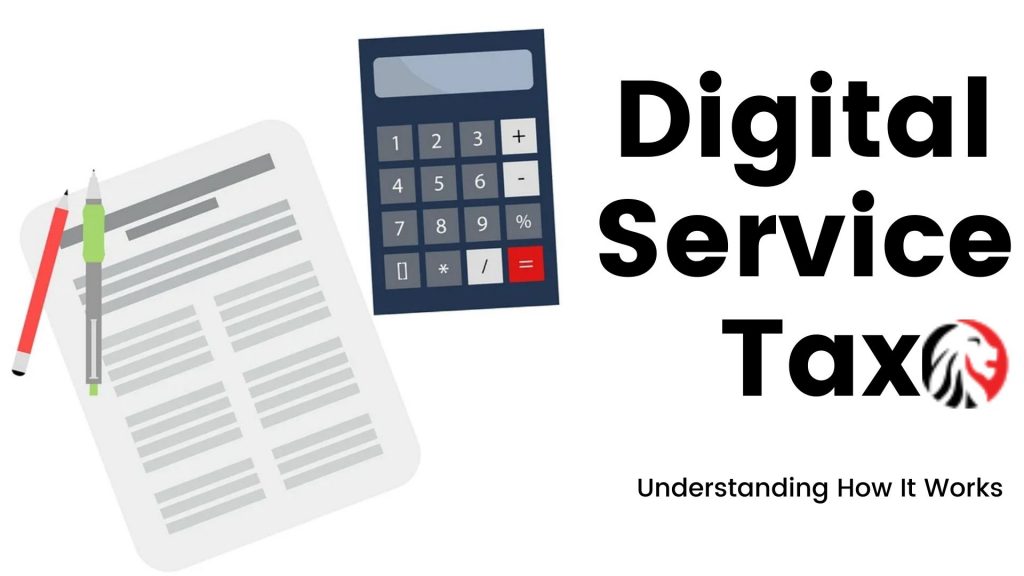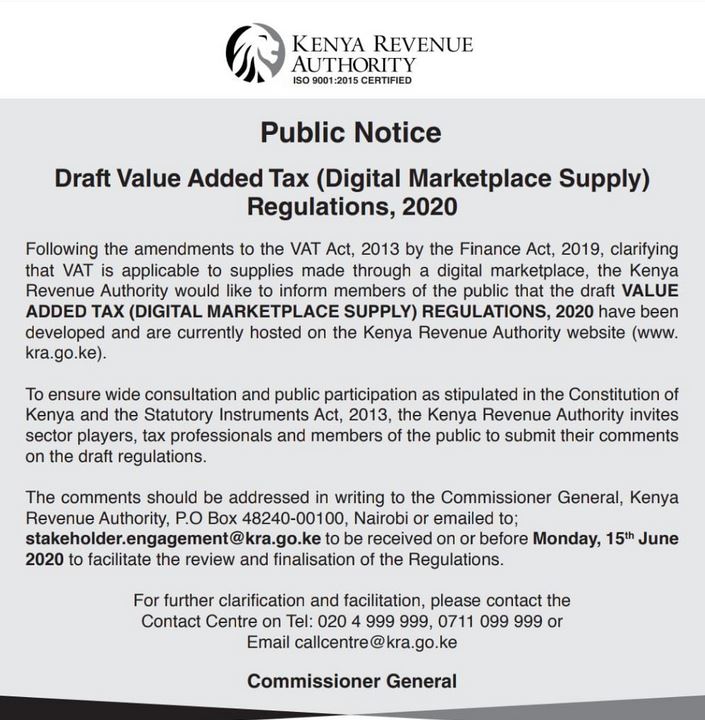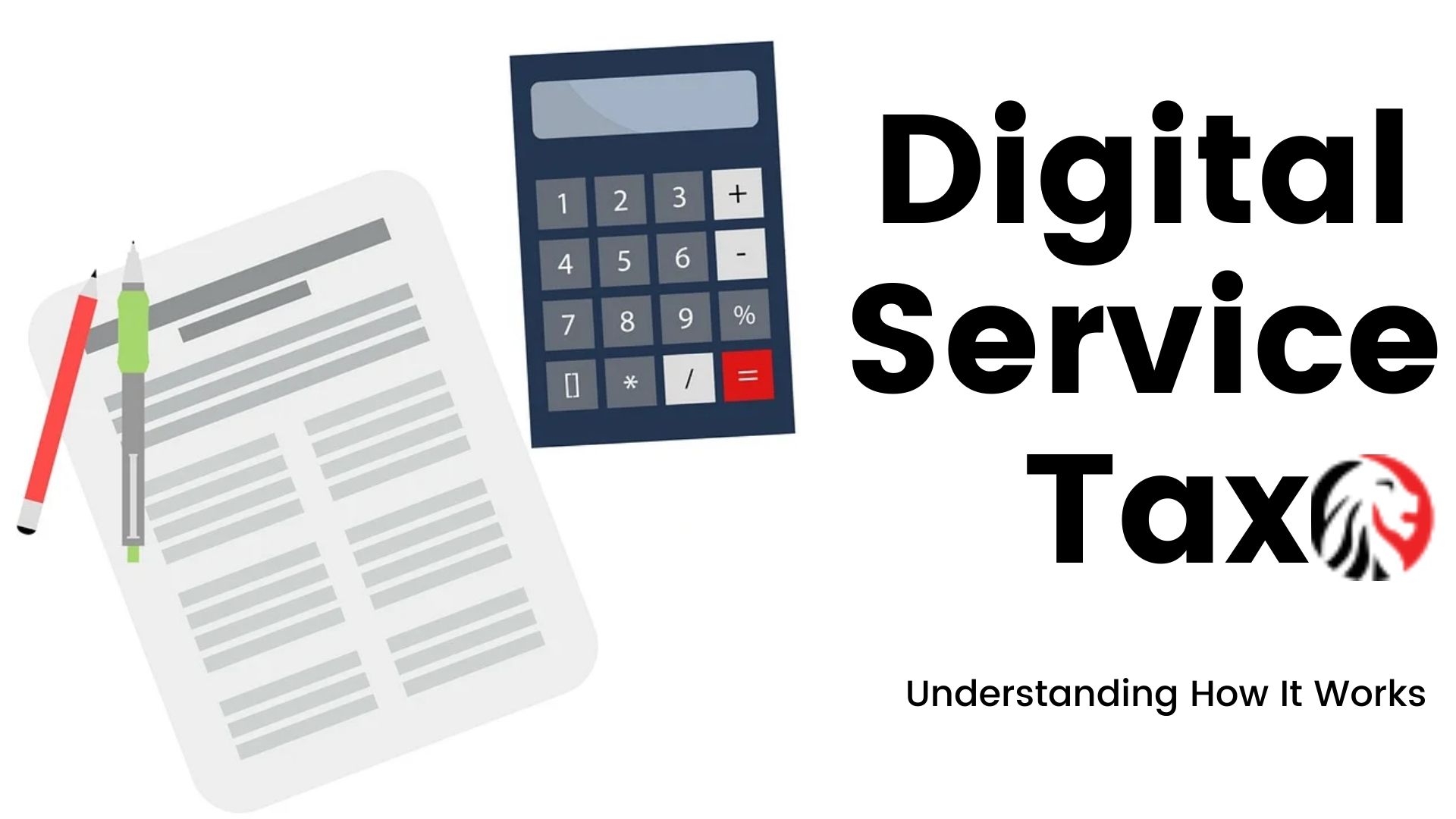What follows is a Detailed Article on Digital Service Tax in Kenya that was introduced through the Finance Bill, 2020 and announced to the public during the 2020/2021 Budget reading.

National Treasury 2020 Budget Statement
While reading the Kenya Budget 2020/2021 in parliament, National Treasury CS Ukur Yatani indicated that many business transactions are being carried out online in Kenya but it is becoming increasingly difficult to tax income derived through such platforms. Therefore, the need to introduce digital service tax on the value of the transaction at the rate of 1.5% arose.
Finance Bill, 2020
The Finance Bill, 2020 which was tabled in parliament on 5th May 2020 introduces a vast of laws relating to various taxes and duties among them being Digital Service Tax. You can download and read the entire bill at the end of this article. In this post, we are going to focus on Digital Service Tax.
UPDATE: on 30th June 2020, President Uhuru Kenyatta signed into law the 2020 Finance Bill
What is Digital Service Tax?
Digital Service Tax is a form of Income tax in Kenya that seeks to tax all income derived through online transactions at the rate of 1.5% for persons with permanent residence in Kenya.
Digital Service Tax in Kenya (how it works)
If the Finance Bill of 2020 is approved by parliament and it becomes law, The Third Schedule of Income Tax Act will be amended in head B after paragraph 10 to include the following, “12. The Rate of tax in respect of digital service tax under section 12 E shall be one point five per cent of the gross transaction Value.”
Section 12 E being referred above states that, “12 E, (1) Notwithstanding any other provision of this Act, a tax to be known as digital service tax shall be payable by a person whose income from the provision of services is derived from or accrues in Kenya through a digital marketplace:
Provided that a resident person or non-resident person with permanent establishment in Kenya shall offset the digital tax payable for that year of income.“
(2) The tax payable under subsection (1) shall be due at the time of the transfer of the payment for the service to the service provider.”
Operation date: The digital service tax will start applying from 1st January 2021. That is after parliament has approved the Finance Bill, 2020.
Submitting Digital Tax to KRA: Tax collected from Digital Service Tax shall be paid to Kenya Revenue Authority for that year of income.
Deduction of Digital Service Tax: You are supposed to deduct 1.5% tax for the payments derived from online services.
Example 1: If you have earn Ksh. 10000 online, then 1.5 % of your income which is Ksh. 150 should be submitted to KRA as Digital Service tax at the end of the year of income
Coming up: KRA is preparing VAT (Digital Marketplace Supply) regulations which provide more details about taxation for supply of digital products or Services whose recipient is in Kenya. As at writing this article, the Digital Marketplace Supply regulations is in draft stage .
We are not sure how the Digital Marketplaces tax, and Digital Service Tax, both with intention of taxing the digital economy will work together. However, Digital Marketplaces tax appears to be targeting businesses that provide online services or digital products to Kenyans (Local and International websites that will be affected include: movie subscription sites, premium audio sites, membership sites, paid gaming sites, e-learning sites, digital eCommerce sites, Hosting sites, paid Software sites e.t.c). On the other hand, Digital Service Tax targets general income earned online by Kenyan Permanent Residents (Online Freelancers in Kenya will be most affected by this).
It should be noted that the Finance Act of 2019 clearly states that Income derived through digital Marketplaces is subject to VAT. Therefore, the Digital Marketplace Supply regulations is being drafted to provide mechanisms of implementing it.

Further Reading Resources
Below are sources of for more reading;
- Finance Bill, 2020 pdf
- Income Tax Act (CAP 470) pdf
- Finance Act 2019 pdf
- Digital Marketplace Supply Draft Regulation pdf
NOTE: To understand more about Digital Service Tax, you should read both Finance Bill, 2020 and Income Tax Act (CAP 470).

Leave a Comment